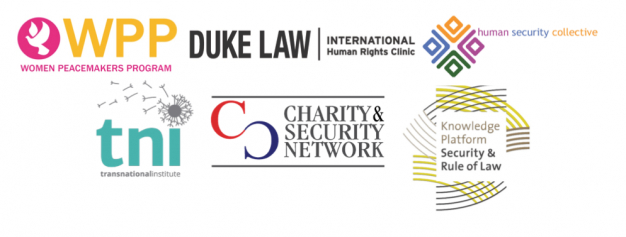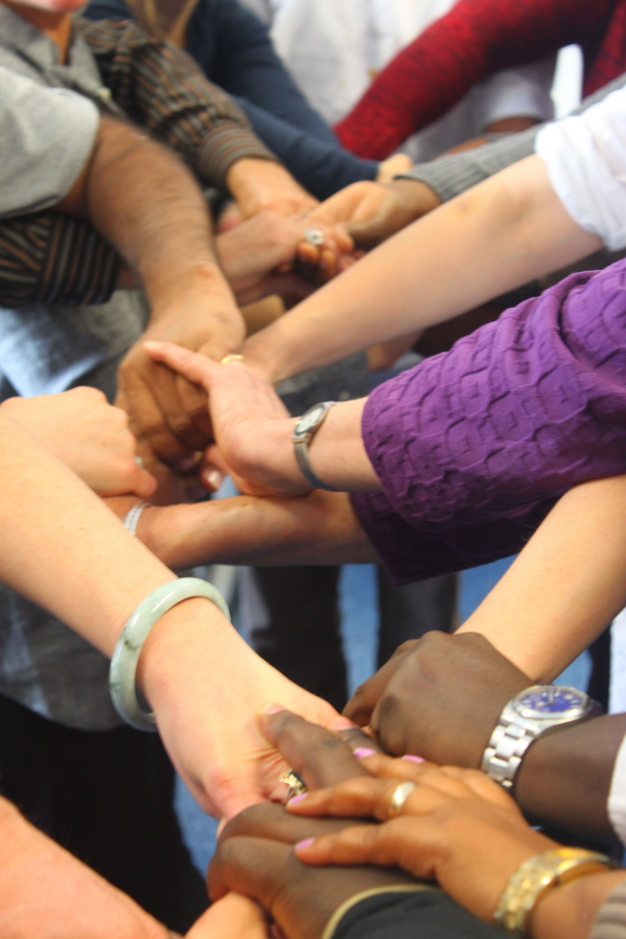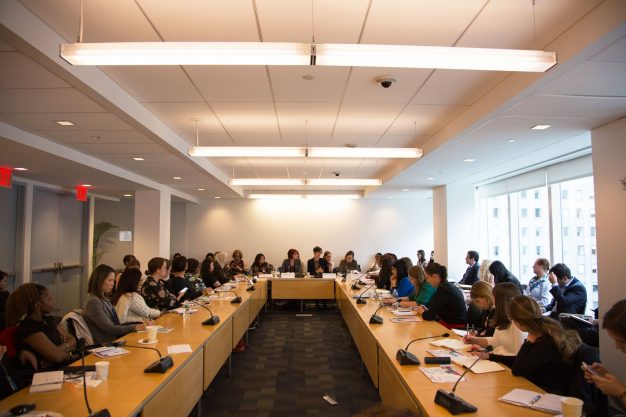As a member of the Post 2015 Women's Coalition, WPP supports the critical analysis and advocacy work of the Coalition.
Press Release
Next week the Zero Draft of the Outcome Document of the Post-2015 Development Agenda ‘Transforming Our World,’ will be negotiated at the United Nations (UN). The document was recently released by the Co-facilitators of the Post-2015 Intergovernmental Negotiations and provides the main framework for the Post-2015 Development Agenda to be adopted during the UN Summit this September. The Post 2015 Women’s Coalition welcomes the Zero Draft as an opportunity to change business as usual and promote a comprehensive gender equality strategy, address inequalities, promote peace and security and be inclusive and accountable to all. Unfortunately, the Zero Draft falls short of ensuring the universal realization of all women’s and girls’ human rights.
Gender equality and women’s human rights must be an integral part of the framework for the Post-2015 agenda and must be considered in the Declaration as a core principle of the Post-2015 vision. Radhika Balakrishnan, Faculty Director of the Center for Women’s Global Leadership (CWGL) emphasized the importance of gender equality as a crosscutting issue throughout the development agenda, and said, “The post-2015 agenda has to integrate gender at every level, it has to engage with the multiple forms of inequality at both national and global levels to provide a meaningful framework for thinking about a political and economic agenda anchored in social justice.”
Although states are obligated under international human rights law including the Maastricht guidelines to progressively realize women's human rights using maximum available resources, these obligations are not adequately reflected in the Zero Draft. Coalition members stressed that the Zero Draft's voluntary follow up mechanisms, disconnect from existing human rights monitoring mechanisms, and restricted targets and indicators fail to capture the ambition needed for transformative change. Sivananthi Thanenthiran, Executive Director of the Asian-Pacific Resource and Research Centre for Women (ARROW) said, "The zero draft does not attempt to address the problems of power which are at the root of current inequalities, and shies away from tackling issues around social marginalization such as gender and sexuality which were hard-won at Beijing and Cairo."
"We must stop subsidizing the current war system and start investing in gender justice and peace," said Madeleine Rees, Secretary General of the Women's International League for Peace and Freedom (WILPF). Building on the 1995 Beijing Platform for Action's commitments to reduce and redirect the current $1.7 trillion arms trade should be one innovative financing mechanism. Reducing military spending by just 10% per year and developing a mechanism through the Financing for Development processes to transfer savings into gender equitable social development would significantly close the financial gap to achieve the SDGs. Beyond this, building on financing obligations to women's human rights are critical to creating change that women human rights defenders can see and feel.
“The document highlights women’s rights and gender equality prominently, and it is critical that this focus remains. Nevertheless, we are concerned and staying alert to the fact that women’s rights are often used as bargaining chips, to be traded as if they are optional, rather than obligations, especially as negotiations continue.” said Alejandra Scampini, Lead Advocacy Coordinator at the Association for Women's Rights in Development (AWID). “Our engagement will seek to ensure that there is no roll back at the international conference on financing for development [to be held in Ethiopia in July], and in relation to decisions on the indicators that will measure progress on the SDGs…we are concerned that there is very little that is transformatory in terms of economic and financial governance.”
The Zero Draft Outcome Document for the Intergovernmental Negotiations on the Post-2015 Development Agenda is a critical opportunity to reinforce gender equality and women’s empowerment as vital components of the Post-2015 agenda. While the Zero Draft takes steps to address these themes it falls short of establishing a comprehensive gender equality strategy.
Contact:
Allison Boehm, Post 2015 Women’s Coalition, Center for Women’s Global Leadership, Rutgers University:
Email: aboehm@cwgl.rutgers.edu Tel (+1) 646-982-4676
www.post2015womenscoaliton.org
Read also the Post 2015 Women’s Coalition’s comprehensive response to the Zero Draft
12 Dec '17 Today, we are pleased to share with you the Conference Report “Financial Inclusion for Freedom and Security” by the Women Peacemakers Program, Duke Law International Human Rights Clinic, Human Security Collective, Transnational Institute, the Charity & Security Network, in cooperation with the Knowledge Platform Security and Rule of Law.

7 Dec '17 Today, on the 13th day of the 16 Days of Activism Against Gender Violence Campaign, we bring you the sad news that from 15 December onwards, the Women Peacemakers Program (WPP) will have to close its doors. We would like to ask for your time to read what has driven us to make this decision.

7 Nov '17 On Thursday, 26 October 2017, a side event entitled, “Pulling the Rug from Under Our Feet: What is the UNSCR 1325 Without Civil Society Freedoms?” was hosted on the margins of the 17th anniversary of United Nations Security Council Resolution (UNSCR) 1325. The event was hosted by the Women Peacemakers Program (WPP) and the Dutch Mission, in collaboration with Duke Law’s International Human Rights Clinic, Al-Hayat Center for Civil Society Development, Arab Women Organisation of Jordan, NOVACT, Free Sight Association, Iraqi Al-Amal Association, Women Empowerment Organisation, NGO Working Group on Women, Peace and Security and Women’s International League for Peace and Freedom. This article briefly looks at the main issues discussed during the event.
